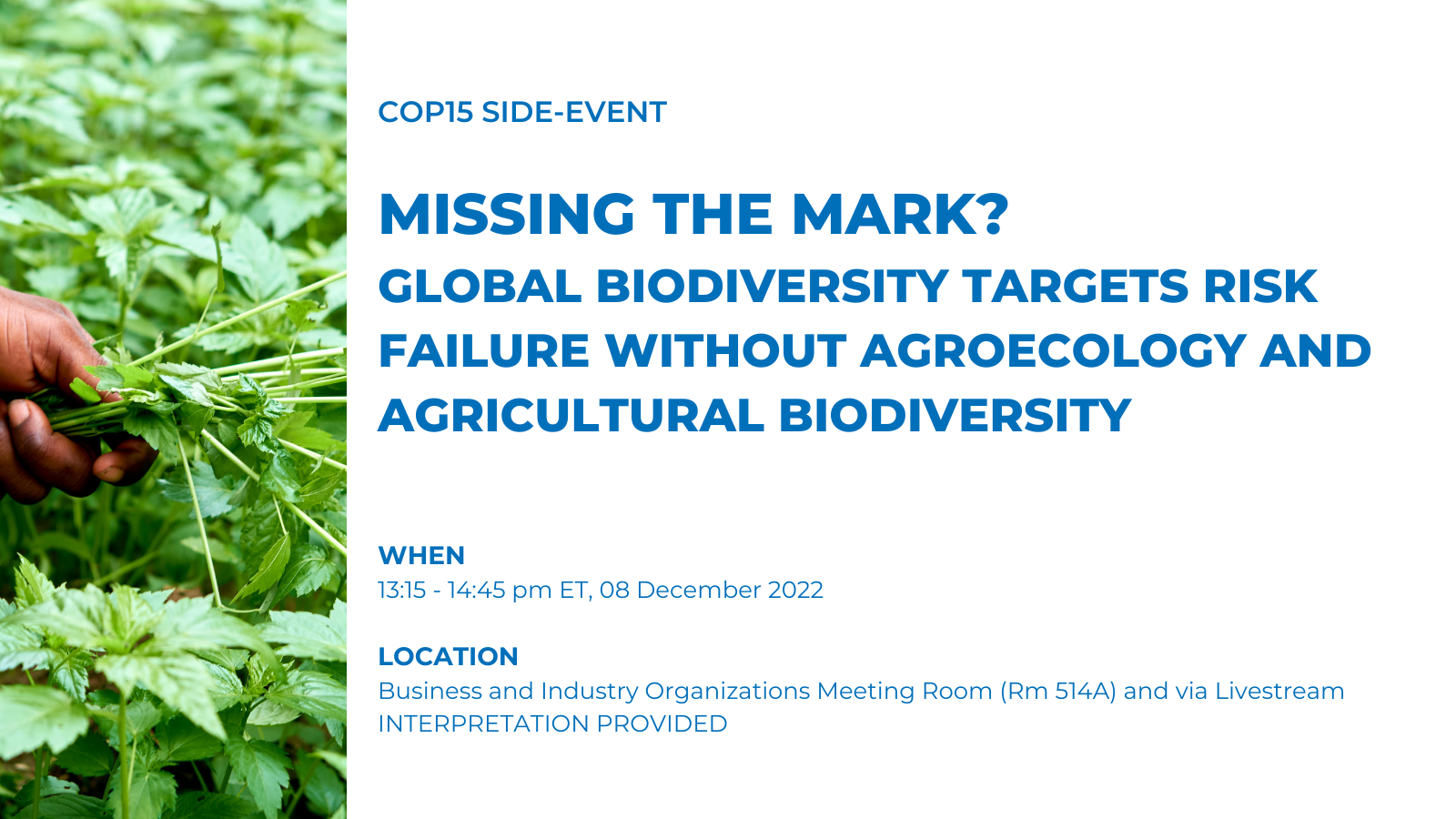We use cookies on this site to enhance your experience.
By selecting “Accept” and continuing to use this website, you consent to the use of cookies.
Biodiversity loss is one of the most pressing issues of our time: we are currently witnessing a mass extinction event, vertebrate populations have decreased by nearly 70% since 1970, and a million more species are at critical risk of extinction. In the pursuit of ever-cheaper food and higher yields, agribusiness has concentrated and industrialised the farming of crops and animals, without regard for the negative impacts on ecosystems and human health. Farming is responsible for 80% of deforestation globally, and unsustainable practices like monocropping and heavy tilling contribute to the rampant destruction of biodiversity. Half the world’s habitable land is now used for agriculture.
Although food systems are at the heart of the crisis, they can also be the solution. Moving beyond a narrow focus on yields, and towards diverse, resilient and nature-friendly food systems could radically enhance our ability to tackle the intertwined challenges of biodiversity loss, climate change and food and nutrition security.
The 15th meeting of the Conference of the Parties to the UN Convention on Biological Diversity (COP15 for short) will take place in Montreal, beginning December 2, 2022. COP15 aims to set new global biodiversity targets until 2030, and halt biodiversity loss. To realise the opportunity offered by COP15, targets to eliminate the impact of food production, processing, consumption and waste on ecosystems and biodiversity need to be a key part of the Global Biodiversity Framework. This means including food policy in National Biodiversity Strategies and Action Plans, and asking governments to make their domestic food policies, including farming subsidies, coherent with their biodiversity and climate goals.
For more, read the op-ed, "We won't stop biodiversity loss without transforming food systems" coauthored by Alison Blay-Palmer, UNESCO Chair on Food, Biodiversity and Sustainability Studies
To help get food into the Global Biodiversity Framework now and onto the agenda for National Biodiversity Strategies and Action Plans in the months to come, a coalition of organizations created a series of Key Messages and suggested language that prioritizes agrobiodiversity and agroecology practices. The policy brief is available in full in English, French and Spanish.
Evidence from IPBES and IPCC is clear—agriculture and land use change are key drivers of biodiversity loss. In the last century we have lost most of our genetic diversity in crop and animal diversity and agriculture is the identified threat to 86% of the 28,000 threatened species. Currently only 12 plants and 5 animals make up 75% of the world’s consumption—just 3 species (wheat, rice and corn) make up over half of the world’s consumption.
While industrial food systems are destroying biodiversity, small biodiverse family farms are at the forefront of conservation and sustainably using agricultural biodiversity. Agroecology is a systems approach practiced around the world that is grounded in Indigenous and traditional knowledges and addresses multiple parts of our global food system to greatly enhance agricultural biodiversity and its benefits. It is critical to maintaining agricultural biodiversity on-farm and across landscapes and territories.
Agroecology is an integrated approach critical to addressing the three pillars of the Convention: conservation, sustainable use, and equity, and must be included in Target 10 of the Global Biodiversity Framework. Strong national commitments to agroecological approaches must be a key part of National Biodiversity Strategies and Action Plans (NBSAPs), including planning, implementation and monitoring.
The Agroecology Coalitions was established in 2021. Forty governments including France, Spain, Mexico, Senegal, Ethiopia, Thailand, Vietnam are members, as are regional bodies like the European Commission and African Union Commission. International organizations agree that agroecology can significantly contribute to climate adaptation and cutting carbon emissions. The transformative role of agroecology in biodiversity conservation is well established.

December 8, 2022
Watch the event here.
Agroecology across mixed and diverse landscapes is a pathway for the global community to avoid ineffective “fortress conservation” approaches that have proven to have limited impact and in many situations lead to systematic violations of local communities’ rights. It can help to reconnect humans and nature as unified systems and offer pathways for just and resilient food systems. It is clear that without a strong focus on agroecology, our global targets for biodiversity conservation are bound to miss the mark.
This side event will explore the importance of agroecological approaches for the Global Biodiversity Framework and beyond. It will also shine a light on emerging coalitions and policy actions that are linking agroecology and agricultural biodiversity, as crucial pathways to transform food systems.
See the full side-event listing for more details.